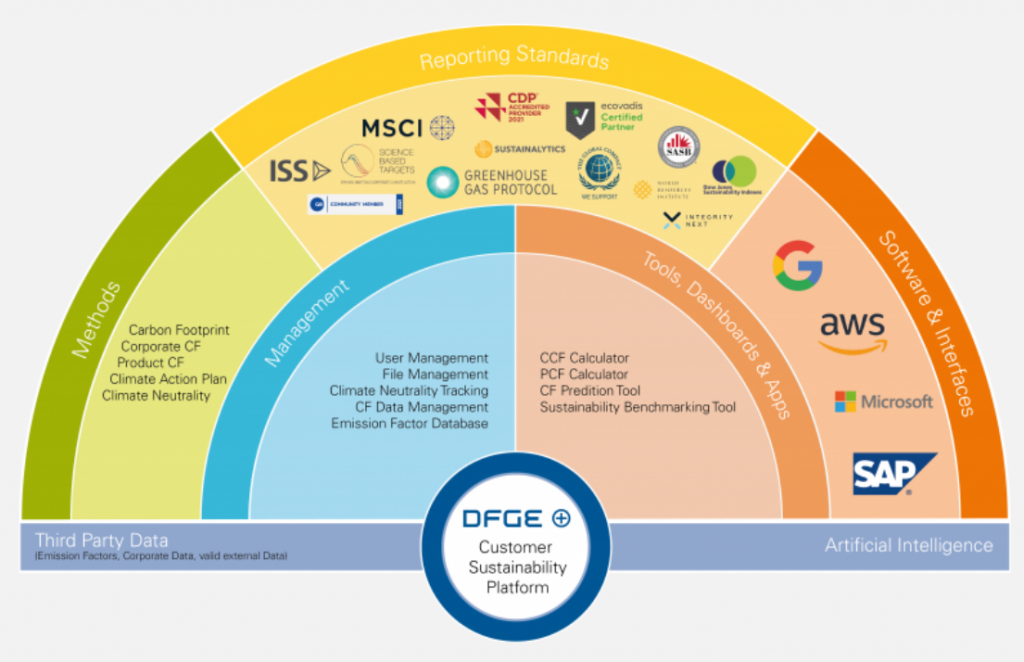… and why a Sustainability Platform is only half of the truth. Due to increased climate change impacts, the pressure on organizations to reduce their environmental impact rises. To effectively reduce emissions the first step is to get to know the company’s status quo through a corporate carbon footprint (CCF) calculation. This enables businesses to know where which part of their overall emissions occur and paves the way to effectively reduce these.
But a CCF calculation is complex, the recording of CO2 emissions extends into the supply chains and companies are under pressure of time. Therefore, they need to find a fast and effective tool to calculate their CCF. In such cases, companies often implemented all in one-solutions, such as Enterprise Resource Planning (ERP) software. Such software solutions support the integrated management of main business processes and are typically composed of embedded applications that an organization can use to collect, store, manage, and interpret data from many business activities, including CCF calculation.
At first glance, ERP software offers several distinct advantages, such as universal use across departments or the availability of data storage in a central pool. However, these solutions are also accompanied by some problems and challenges that should not be underestimated. User acceptance is a factor that is often underestimated, since the manual preparation of data must be carried out before it can be entered into the system. In addition, software solutions face the question of how to deal with data gaps. Specialized software also requires an expert employee who, ideally, is also able to take on simple troubleshooting independently beyond simply understanding the background – but this is often overlooked at the time of purchase. Moreover, the maintenance and future compatibility of software must also be considered to ensure long-term use throughout the entire product life cycle (Weber et Bodemann, 2018).
Particularly in the case of CCF calculations, in-depth knowledge, for instance about specific emission factors or the setting of company-wide system boundaries for the calculation, is demanded, making this task not an easy one. ERP software tools promise to be able to cope with these jobs but often fail.
DFGE’s new Customer Sustainability Platform offers a holistic solution
Therefore, companies are better advised with hiring experts for their CCF calculation. DFGE offers a wide range of services and experts to help companies with this task. Our new DFGE Customer Sustainability Platform is the perfect tool for clients who aim for a holistic and effective CCF calculation.

The DFGE Customer Sustainability Platform not only acts as a central and intelligent hub for the life-cycle management of sustainability where it lets you manage important data for acquisition and submission, but also allows you to centralise and store all relevant information in a secure environment and facilitates calculations of Product and/or Corporate Carbon Footprints, which are increasingly based on Science-Based Targets (SBTs) and become dynamic through partial automation. Moreover, it supports agile analysis and management of CSR activities, measures their impact on company-wide CO2 emissions, and allows you to integrate your supply chains on your DFGE Customer Sustainability Platform.
For more information, contact us at or +49.8192.99733-20. We look forward to supporting you with our more than 20 years of sustainability expertise and our customized services!
References:
- Weber, G. and Bodemann, M., 2018. CSR und Nachhaltigkeitssoftware. Berlin, Heidelberg: Springer.









